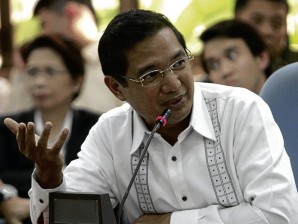Left not against mining, after all
BAGUIO CITY—The Left has finally come out: It has not been against mining, after all.
Bayan Muna Rep. Teodoro Casiño on Tuesday said opposition to the Philippine Mining Act of 1995 (Republic Act No. 7942) was all about developing a mining industry that benefits small communities and the environment, instead of multinationals that export raw minerals to feed a global demand. “Because that is how the law has shaped Philippine mining,” he said.
The mining industry, however, believes nullifying the mining law would come at a disastrous cost.
“Can you imagine the possible impact of canceling the FTAA [financial or technical assistance agreement] or MPSA [mineral production sharing agreement]?” said Tito Lopez, counsel of Australian mining firm OceanaGold that operates in Nueva Vizcaya.
“These foreign companies have already invested a lot in their explorations and actual operations and you will cancel their permits? Will that not discourage foreign investments?” Lopez said.
Article continues after this advertisementLopez also disputed the petitions’ bid “for relief from the high court in pushing for an equitable sharing of revenues” by arguing that Malacañang and Congress have each initiated ways to address this issue.
Article continues after this advertisementThe court had declared RA 7942 unconstitutional in January 2004 because, it said, the law allows companies with 100-percent foreign equity to exploit natural resources through the FTAAs. The court, however, reversed its position in December of the same year.
Since the court had already “flip-flopped” on the mining law issue, “let the Supreme Court flip-flop again for the people,” Casiño said.
But Lopez said it was precisely the 2004 ruling which should compel the court to dismiss the two petitions. “All these claims had already been raised and passed upon by the honorable court in the earlier cases, where rulings were already declared final,” he said.
According to Casiño, groups that are often at odds with each other, like party-list groups Bayan Muna and Akbayan and the Liberal Party, have united behind alternative mining bills that provide new business models for mining that seek a management program for minerals as a way to conserve nonrenewable resources.
He was referring to House Bill No. 4315 (An Act Re-Orienting the Philippine Mining Industry) and House Bill No. 3763 (Philippine Mineral Resources Act).
“When we speak of benefits, we don’t just refer to monetary revenues … Does it result in an industrialized economy? [RA 7942] is designed to address the needs of the world market. The world market is an unlimited market. We will consume all our resources without fulfilling the demand of the world market so a more reasonable approach is necessary,” Casiño said.
“Mining is a viable economic activity that we recognize because we are rich in natural resources. But [minerals] are a finite resource,” said Judy Pasimio, former executive director of the Legal Rights and Natural Resources Center, which sided with indigenous communities opposed to mining. She represents Lilak (Purple Action for Indigenous Women’s Rights).
They made these assertions at a news conference on behalf of a coalition of groups and people who petitioned the Supreme Court to declare the mining law unconstitutional.
Casiño was here to participate in oral arguments scheduled by the Supreme Court, sitting en banc, on regarding two challenges filed in 2008 against the mining law.
